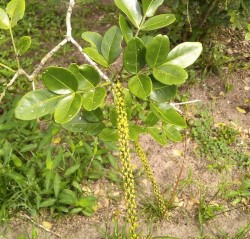The combination of scientific and traditional knowledge has been a rich source for studies on the sustainable use of Jaborandi in Carajás National Forest, a species that is on the endangered list of Brazilian flora. Led by the Vale Technological Institute in Belém, the research is mapping the areas of occurrence, determining genetic diversity, selecting plants and studying the management of Jaborandi.

Besides directly contributing to the elaboration of conservation and sustainable use plans for the species, the research aims to identify plants in the mapped areas that are representative for conservation and also those with the greatest productive potential. The study used thousands of molecular markers such as SNPs (Single Nucleotide Polymorphism), which allow precise evaluation of genome representation.
“Together with the selection of matrices, these results make up an important piece for the sustainable use of Jaborandi. Ongoing studies use the machine learning technique to incorporate environmental variables and also genetic markers of approximately 300 Jaborandi plants. The goal is to identify genes and/or environmental factors associated with high pilocarpine levels,” states Cecílio Caldeira, ITV Researcher.
New steps in the study seek to evaluate the physiology and nutritional aspects of Jaborandi, with the creation of a germplasm bank to ensure the conservation of genetic diversity of the species, as well as the planting of seedlings in environmental recovery areas, where they can be managed to maximize the production of plant material and pilocarpine.
Jaborandi is the only natural source of pilocarpine, a substance extracted from the leaves and used to treat diseases such as glaucoma and xerostomia, a disorder associated with low saliva production by the salivary glands. In addition, the collection of the species’ leaves in the forest generates income for families associated with the Cooperative of Extractivists of Carajás National Forest (COEX-CARAJÁS), through the sale of Jaborandi seeds to Vale’s seedling nursery in Carajás.

